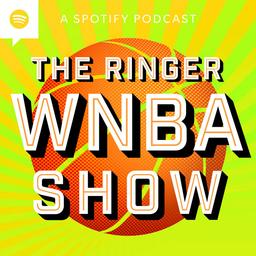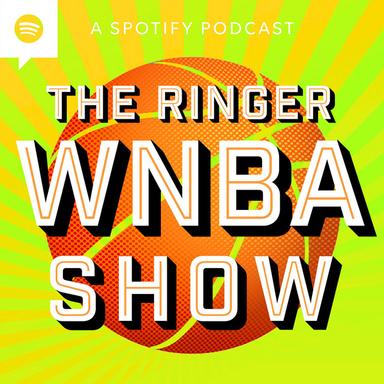At first glance, Napheesa Collier seems like an atypical candidate to deliver what’s looking like the boldest power play the WNBA has ever seen.
She’s never requested a trade or played shadow GM. She’s spent her entire career with one franchise, the Minnesota Lynx, and she is not loud or domineering—neither in demeanor nor in play style.
But she has always understood the power of a well-timed cut—one perfectly orchestrated move can have devastating ripple effects, and finding the right time to strike comes from years of patience and practice.
So when Collier publicly rebuked WNBA commissioner Cathy Engelbert’s leadership on Tuesday with a directness rarely seen in American professional sports, she did it her own way, pointing out the common pattern in every problem that faces the league, from refereeing to CBA negotiations to ratings: “lack of accountability from the league office.”
“We have the best players in the world,” said Collier. “We have the best fans in the world, but right now, we have the worst leadership in the world.”
It was all underscored by the unprecedented leverage that Collier wields, as the cofounder of Unrivaled, a 3-on-3 winter league that has seized on opportunities—from better referees and player development to marketing and fan engagement—that the WNBA has been too slow and unimaginative to capitalize on. While the threat of a WNBA lockout looms this offseason, Unrivaled will employ 48 of its players, or about a third of the league.
It’s unprecedented for a star player, let alone a union rep, to be a founder of another league. But these are heady, unparalleled times in the WNBA. Attendance, ratings, and franchise valuations are skyrocketing in the W, and the current CBA expires in less than 30 days. The players, thanks to outside income, sponsorships, and NIL money, have a new level of bargaining power. After Caitlin Clark, Collier may be the single most influential player in a league that is increasingly driven by star power. The clock has been running out at the negotiation table, and it seems like Engelbert never once bothered to look up at who exactly she was dealing with. On Tuesday, Phee gave her the wake-up call of the century.
“I have finally grown tired,” Collier said. “For too long, I have tried to have these conversations in private, but it's clear there is no intention of accepting there's a problem. The league has made it clear it isn't about innovation; it isn't about collaboration. It's about control and power.”
According to Sports Business Journal’s Tom Friend, multiple sources believe that Engelbert’s tenure will likely end after the conclusion of CBA negotiations; that intel was delivered before Collier’s statement. The main critique levied against Engelbert—that she is unable to build trust and relationships with players—is even more serious in an era that will be more defined by player power than ever. If the players’ lack of trust in Engelbert extends an already arduous negotiation process, her tenure could end even before CBA negotiations are over.
Collier’s season ended unceremoniously, after she lost the ball in Game 3 of the conference semifinals when the Mercury's Alyssa Thomas stole the ball but slammed into Collier's leg in the process. She would later be diagnosed with a season-ending Grade 2 tear in her left ankle.
When she saw her star player down on the floor after the collision with Thomas, Lynx coach Cheryl Reeve rushed the court and went on a profanity-laced tirade against the referees, whom she believed had missed a blatant call. It was a historic on-court crash-out that culminated in an impassioned postgame monologue in which Reeve accused the league of allowing physicality, fighting, and injuries and called for “a change in leadership at the league level when it comes to officiating.”
It was a devastating injury and a pivotal moment in the WNBA’s season. The league is not transparent about how it holds refs accountable, but the aftermath of Collier's injury offered an indication of the league's approach.
Reeve was fined $15,000 for her comments and conduct—likely the largest fine in league history, according to the AP—and suspended one game. Aces coach Becky Hammon and Fever coach Stephanie White, who backed her through comments in the media, were reportedly also fined. So were two Lynx assistant coaches.
The NBA’s official referee account on X, which rarely comments on WNBA plays, emphatically stated that the play was not a foul:
The official account's verdict didn't seem as noteworthy as the fact that it felt the need to make a call at all, which came off as downright defensive.
Any number of factors could have driven Collier to go scorched earth on Engelbert. But it seems clear that the straw that broke the camel’s back wasn’t reffing or the ongoing CBA negotiations. It was Engelbert’s failure as a leader, neglecting to reach out to Collier in the wake of her season-ending injury.
“Not one call, not one text. The only outreach has come from her no. 2, telling my agent that she doesn't believe physical play is contributing to injuries. That is infuriating, and it's the perfect example of the tone-deaf, dismissive approach that our leaders always seem to take,” Collier said.
After the outcry surrounding Collier’s injury, WNBA sources told ESPN that their internal data “does not show any correlation between the rash of recent playoff injuries and missed calls by officials.” This hearkens back to Engelbert’s press conference at All-Star Weekend, when she told reporters that “our data would show there's no significant increase in injuries through the same number of games as last year.”
But research compiled by Dr. Lucas Seehafer, a kinesiology professor and reporter for The Next whose dissertation focused on injuries in the WNBA, shows that the number of injuries increased after the schedule expanded from 40 games in 2023 to 44 this season. Despite the rise in injuries, roster spots have not been added to go with the increase in games.
This season, many of the WNBA’s injuries have been suffered by high-profile players, including Clark, Collier, and Breanna Stewart. The most obvious common denominator between the Las Vegas Aces and the Phoenix Mercury, the last two teams standing in the title race? Health.
“Hearing over and over and over again, ‘We have the best refs in the world. We don't have a problem. None of the injuries are due to physicality in the way that we're reffing.’ It's an insult to my intelligence,” Collier said. “Honestly, I've played this game for my entire life, and you think that I don't know what it looks like when it's played the way it's supposed to be played?”
Collier shared details of conversations she has had with Engelbert to argue that the current administration has regularly treated players with disrespect, beyond the refereeing issue.
"I asked how she planned to fix the fact that players like Caitlin, Angel [Reese] and Paige [Bueckers], who are clearly driving massive revenue for the league, are making so little for their first four years,” Collier said. “Her response was, 'Caitlin should be grateful she makes $16 million off the court because without the platform that the WNBA gives her, she wouldn't make anything.’ And in that same conversation, she told me, 'Players should be on their knees thanking their lucky stars for the media rights deal that I got them.' That's the mentality driving our league from the top."
In a response, Engelbert said she was dismayed by Collier’s characterization of their conversations but did not issue an outright denial. The comments, if true, indicate that the commissioner is unaware of the new league terrain she is operating in.
Suggesting that a player should be grateful for the WNBA’s platform hearkens back to a time when players might have been scared to demand more because the W’s future was not guaranteed.
And then there’s the irony of telling Collier, who helped negotiate an arguably more competitive media rights deal for Unrivaled than what the WNBA was able to negotiate for itself, that she should be thanking Engelbert.
The language, which echoes old-school tactics to suppress the salaries of women—when employers would demand their gratitude, citing the scarcity of roles, and position employees’ demands as an overreach—seems designed to engender self-doubt. Meanwhile, the league also wants to use its players as examples of empowerment. You couldn’t script a more on-the-nose parable about the limits of #GirlBoss feminism.
Perhaps Engelbert was so busy undermining the players that she started to believe her own narrative. The truth is, Engelbert’s position and her past make her an easy target. But she's also just a pawn on the greater chessboard. Engelbert has to answer to Adam Silver and the NBA. The WNBA has never been in control of its own destiny; the NBA owns over 60 percent of the league. All major decisions have to be approved by the board of governors, made up of the owners of all 30 NBA teams as well as the 13 WNBA owners. Silver and the NBA continue to escape judgment even though they have a large hand in the W's operations.
When you keep that in mind, it makes a lot more sense that the league seems more concerned with the sale of the Connecticut Sun at a discount to an owner with NBA ties—even at the risk of antitrust exposure—than it seems to be with the health and safety of its players.
There is potentially a silver lining to so many expansion franchises being awarded to NBA ownership groups, though: With more NBA owners having a real stake in the WNBA, the league could shift from being considered an appendage to an entity worthy of investment and care.
Up until now, Engelbert has served as the lead puppet of a league that launders its resources back into the pockets of the people who are already the richest. She’ll dole out awards and play the role of the benevolent liaison, but she’ll apparently never fight for the WNBA to have any genuine autonomy, because her job is to protect the power of the owners. With players turning on Engelbert more publicly than ever, the question is how long the WNBA and NBA will continue to back her. In a league increasingly driven by star power and the looming existential threat of Unrivaled, the less the players see her as a benevolent liaison, the less utility she'll have.
If there is a version of the WNBA that can fulfill its potential while operating as an NBA subsidiary, it will require a commissioner who can skillfully communicate with players and integrate their vision for the future of the league. As player power rises and the threat of Unrivaled looms, collaboration between the players, owners, and commissioner is the way to survive and thrive. The WNBA has the resources to realize its potential. Collier, who has already helped build one league, has the vision. Maybe it’s time to hand her the playbook.


